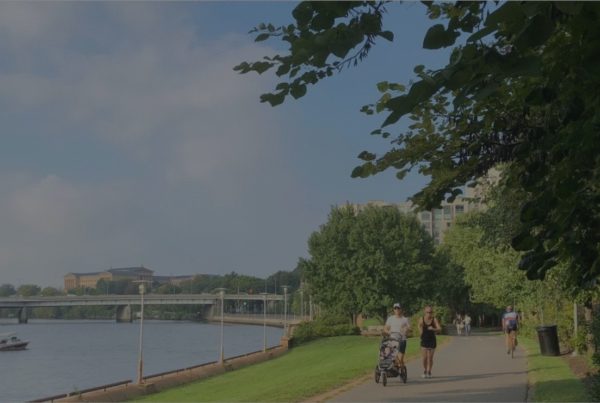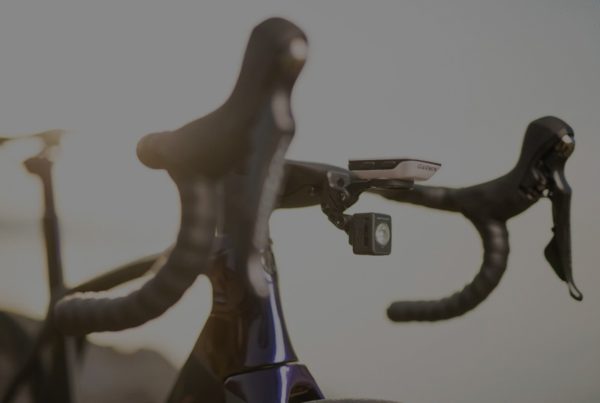Dear Bob,
I live and bike in Texas. A few weeks ago friends in a cycling club were stopped and cited for failure to stop at a 4-way stop sign. Having ridden a few times with the group, I believe the officer to be correct, as the group rarely stopped at 4-way stop signs. However, a few cyclists were also cited for failure to carry their driver’s license. I am a little confused as I seem to recall biking for 12 years or so before I qualified by age for a driver’s license. I personally carry a Road ID strapped to my ankle in the event of an unfortunate incident. The officer insisted that a state issued ID must be carried on your person at all times. Was he correct? I hate to think that I must carry my driver’s license out on the road biking with me.
C. W.,
Texas
Dear C.W.,
Really? A state-issued ID must be carried on your person at all times? Even when you’re taking a bath? Well, if the officer believes that Texas requires you to carry ID on your person when you’re taking a bath, I guess it would also be required when you’re eating dinner. Or watching TV. Or even if you’re just walking down the street. That seems a bit like “are your papers in order?” to me. How does it seem to you?
My initial and automatic reaction was that the officer might be wrong, that there is no statutory requirement to carry state-issued I.D. on your person at all times, but I looked through the Texas statutes anyway. Not surprisingly, there is no such requirement in Texas. Now, what if the officer had instead said you have to present a state-issued ID when you are being issued a citation? Would he be right then? The answer is no; let’s look at Texas law to see why.
Generally, if a law enforcement officer observes an offense being committed, and a statute authorizes that officer to make an arrest, the officer has “probable cause” to make an arrest. In Texas, Section 543.001 of the Transportation Code authorizes “any peace officer” to “arrest without warrant a person found committing a violation” of the Transportation Code. Now, under Texas law, a bicycle is not a “vehicle.” However, in Texas, “a person operating a bicycle has all of the rights and duties applicable to a driver operating a vehicle.” Among other things, that means that when “approaching an intersection with a stop sign” a cyclist must stop, just like everybody else. When your friends blew that stop sign, and the officer observed them do that, he was authorized to arrest them. In fact, in Atwater v. City of Lago Vista, a 2001 case from Texas, the United States Supreme Court upheld a law enforcement officer’s arrest of a woman for failure to wear a seat belt.
Fortunately for your friends, however, when they blew that stop sign, the officer who observed them decided to issue a citation, which means that if they “promised to appear” in court to answer the charges against them, he would release them from custody instead of taking them to jail. In fact, most traffic stops result in a citation, rather than a trip to jail, but that decision is, with a few limited exceptions, almost entirely within the officer’s discretion.
In this case, upon witnessing an offense, the officer decided to issue citations, and asked for ID. Once the officer has probable cause to arrest you—in this case, by issuing a citation—the officer is entitled to know your identity, the same as he would be if you are arrested and taken to jail. In fact, failure to identify yourself or even falsely identifying yourself, after you’ve been arrested is a misdemeanor in Texas.
But what if you haven’t been arrested? An officer may “detain” you to investigate further if the officer has a “reasonable suspicion” that you may have committed an offense. If an officer has only “detained” you for investigation, you are not required to identify yourself. However, if you do identify yourself, you must identify yourself truthfully; providing a false identification when you’ve been detained is also a misdemeanor in Texas.
So, how do you know if you’re being detained, or being arrested? You don’t—the only way to know is to ask. If an officer asks you to identify yourself and if you want to legally withhold your identity, you will have to ask the officer if you’re under arrest. But remember, when an officer has observed an offense and has probable cause, the officer has broad discretion as to whether to make an arrest, issue a citation, or let you go with a warning. As a practical matter, refusing to identify yourself unless you’ve been arrested may convince the officer to change the traffic stop from a warning-and-release to a citation-and-release, or worse, to an arrest.
But practical considerations aren’t the only thing that matter. If you have the right to not identify yourself just because a police officer has a suspicion—even a reasonable suspicion—that you’ve committed some offense, should you give up that right just to be practical? Of course, you can’t be arrested on reasonable suspicion—the officer would have to have probable cause to arrest or cite you, so if the officer only has reasonable suspicion, you’re not risking arrest by refusing to identify yourself. On the other hand, if the officer does have probable cause, you must identify yourself when asked, and asking the officer if you’ve been arrested, while not illegal, may be seen as uncooperative behavior warranting a citation or arrest, rather than a warning-and-release. Some would argue that being arrested isn’t worth the hassle of missing work, or spending the weekend in jail. Others would argue that waiving their rights to avoid arrest is surrendering to governmental coercion, and that in this day and age, when so many of our civil liberties are being daily eroded, we must take a stand and insist on our civil rights in order to protect them. Both arguments have some merit. For many people, an arrest or citation is a disruption in their life they can ill afford. For that reason, those who do risk arrest in order to protect their civil liberties are really protecting the civil liberties of all of us. For that, they are heroes.
Regardless of these issues, your friends ran a stop sign and were stopped by a law enforcement officer. Let’s assume that the officer observed the offense, and therefore had probable cause. He decided to issue them a citation, and asked for their I.D., which they weren’t carrying. Does that mean that they can be cited for failure to carry a driver’s license? After reading the Texas statutes, I think it’s pretty clear that the answer is no—a cyclist cannot be cited for failure to carry a driver’s license. Although there is a statute requiring a driver’s license to be carried and presented on demand, the statute only applies to somebody who is operating a motor vehicle—something your friends were not doing when they were stopped. The statute does not require anybody to carry a driver’s license at any time other than when they are operating a motor vehicle, nor should it, because under Texas law, “a person operating a bicycle has all of the rights and duties applicable to a driver operating a vehicle…unless a right or duty applicable to a driver operating a vehicle cannot by its nature apply to a person operating a bicycle.”
Therefore, if they are not required to carry a driver’s license, your friends can’t be cited for failure to carry a driver’s license. As I’ve said, they can be cited for failure to identify themselves, but there is nothing in that statute that specifies that they must produce a driver’s license or other state-issued identification; they are only required to correctly identify themselves after they have been “lawfully arrested.”< Keep in mind that this requirement will vary by state. For example, in California, if a person can’t produce a driver’s license or other government-issued I.D. when the officer has probable cause to make an arrest, state law requires the law enforcement officer to take that person into custodial arrest—that means the person is taken to jail instead of cited and released. Because identification laws will vary by state, it’s important for cyclists to know what’s required in whatever state they’re riding in. Good luck, Bob (Research and drafting provided by Rick Bernardi-law student- Lewis and Clark)
This article, Your papers, please, was originally published on VeloNews on August 2, 2007.<
Now read the fine print:
Bob Mionske is a former competitive cyclist who represented the U.S. at the 1988 Olympic games (where he finished fourth in the road race), the 1992 Olympics, as well as winning the 1990 national championship road race.
After retiring from racing in 1993, he coached the Saturn Professional Cycling team for one year before heading off to law school. Mionske’s practice is now split between personal-injury work, representing professional athletes as an agent and other legal issues facing endurance athletes (traffic violations, contract, criminal charges, intellectual property, etc). Mionske is also the author of Bicycling & the Law, designed to be the primary resource for cyclists to consult when faced with a legal question. It provides readers with the knowledge to avoid many legal problems in the first place, and informs them of their rights, their responsibilities, and what steps they can take if they do encounter a legal problem. If you have a cycling-related legal question, please send it to mionskelaw@hotmail.com . Bob will answer as many of these questions privately as he can. He will also select a few questions each week to answer in this column. General bicycle-accident advice can be found at bicyclelaw.com.
Important notice:
The information provided in the “Legally Speaking” column is not legal advice. The information provided on this public web site is provided solely for the general interest of the visitors tot his web site. The information contained in the column applies to general principles of American jurisprudence and may not reflect current legal developments or statutory changes in the various jurisdictions and therefore should not be relied upon or interpreted as legal advice. Understand that reading the information contained in this column does not mean you have established an attorney-client relationship with attorney Bob Mionske. Readers of this column should not act upon any information contained in the web site without first seeking the advice of legal counsel.


